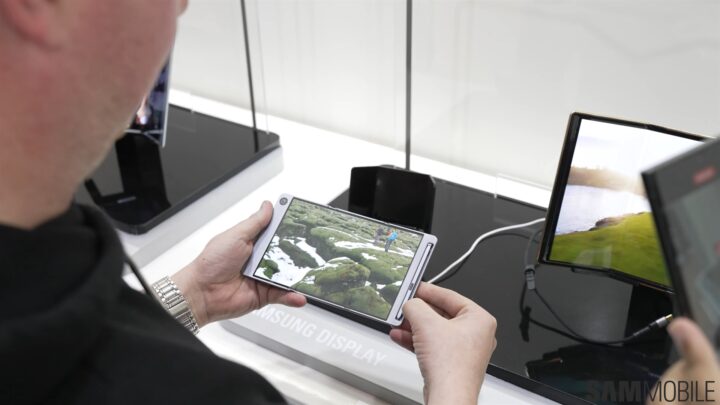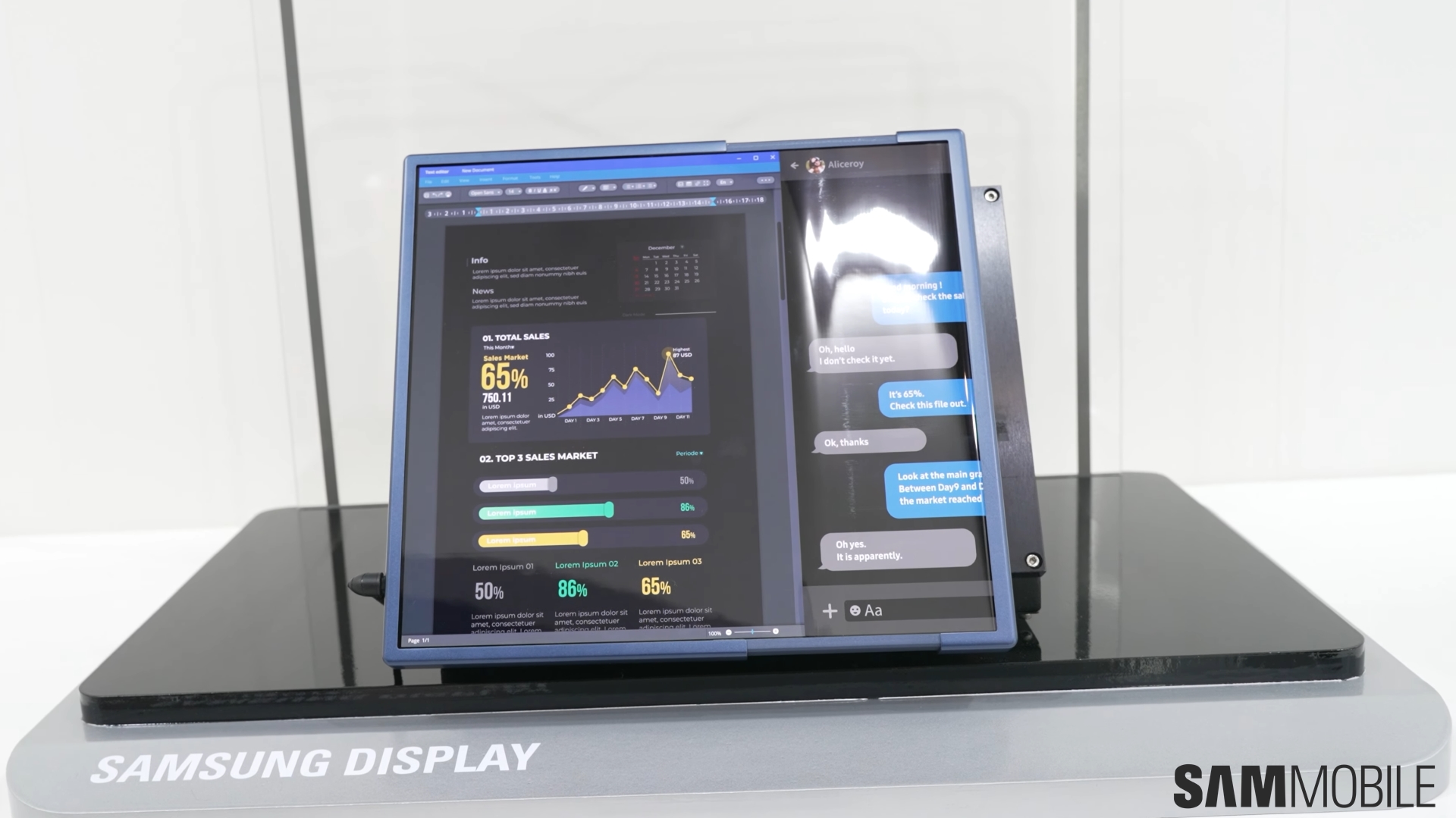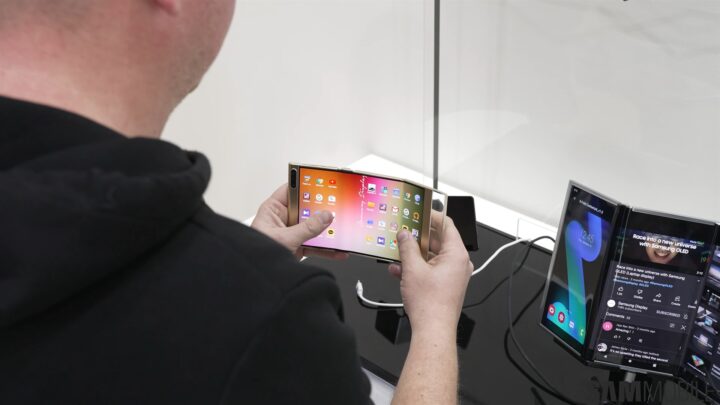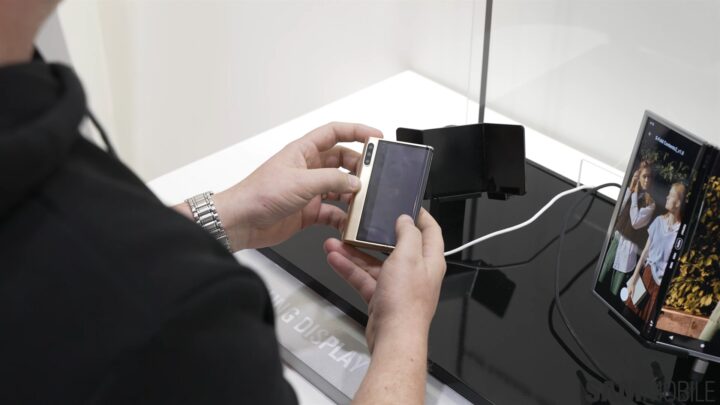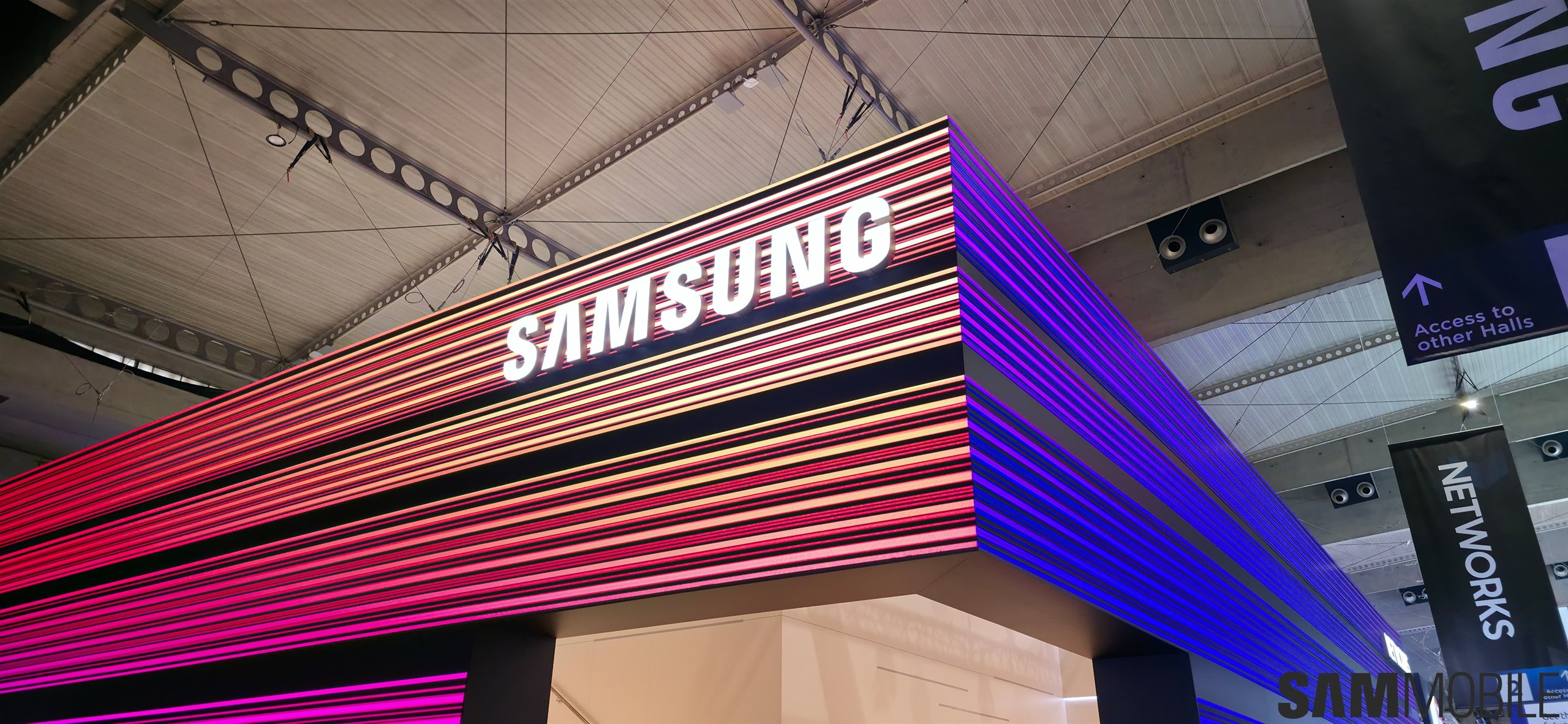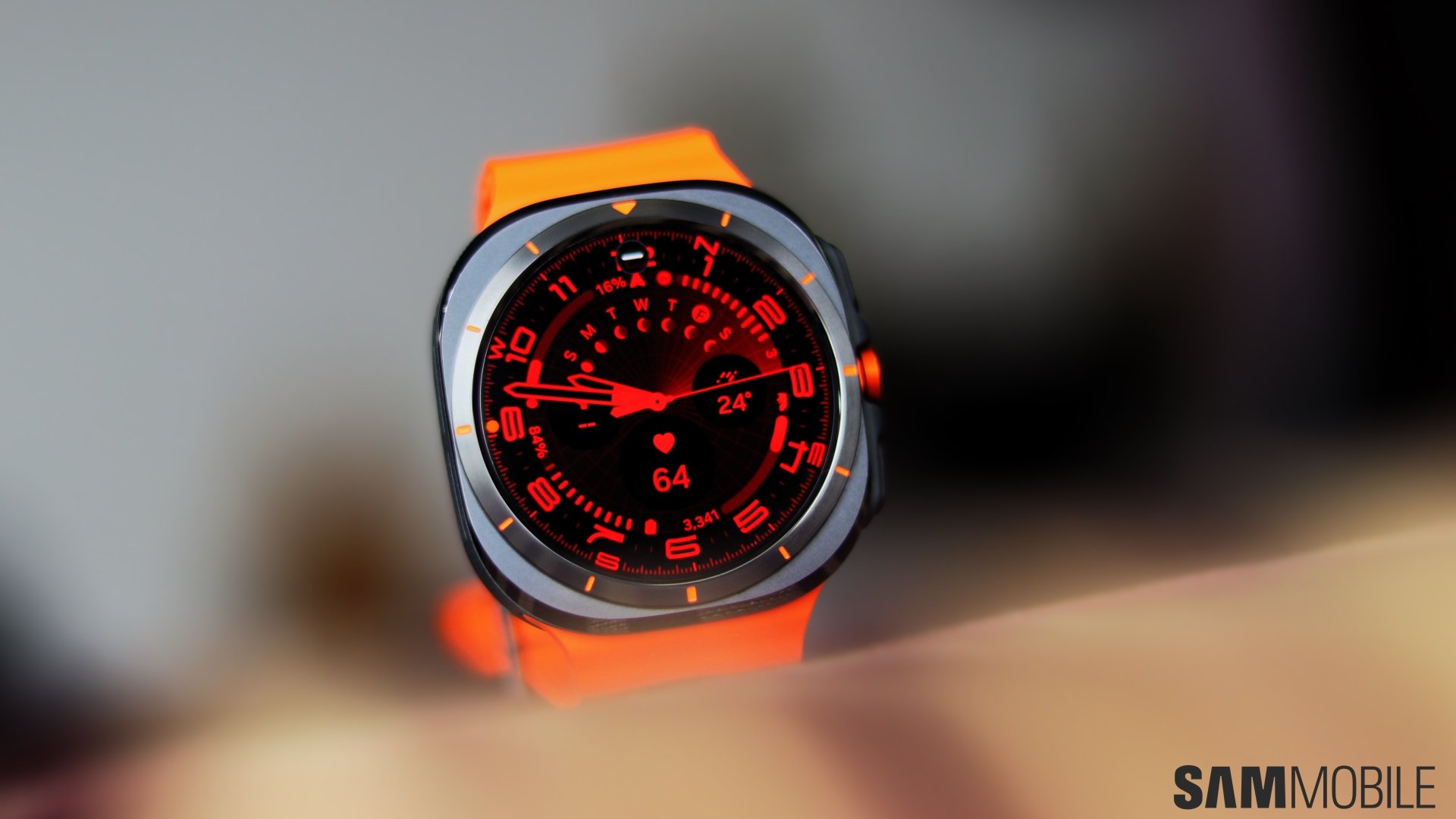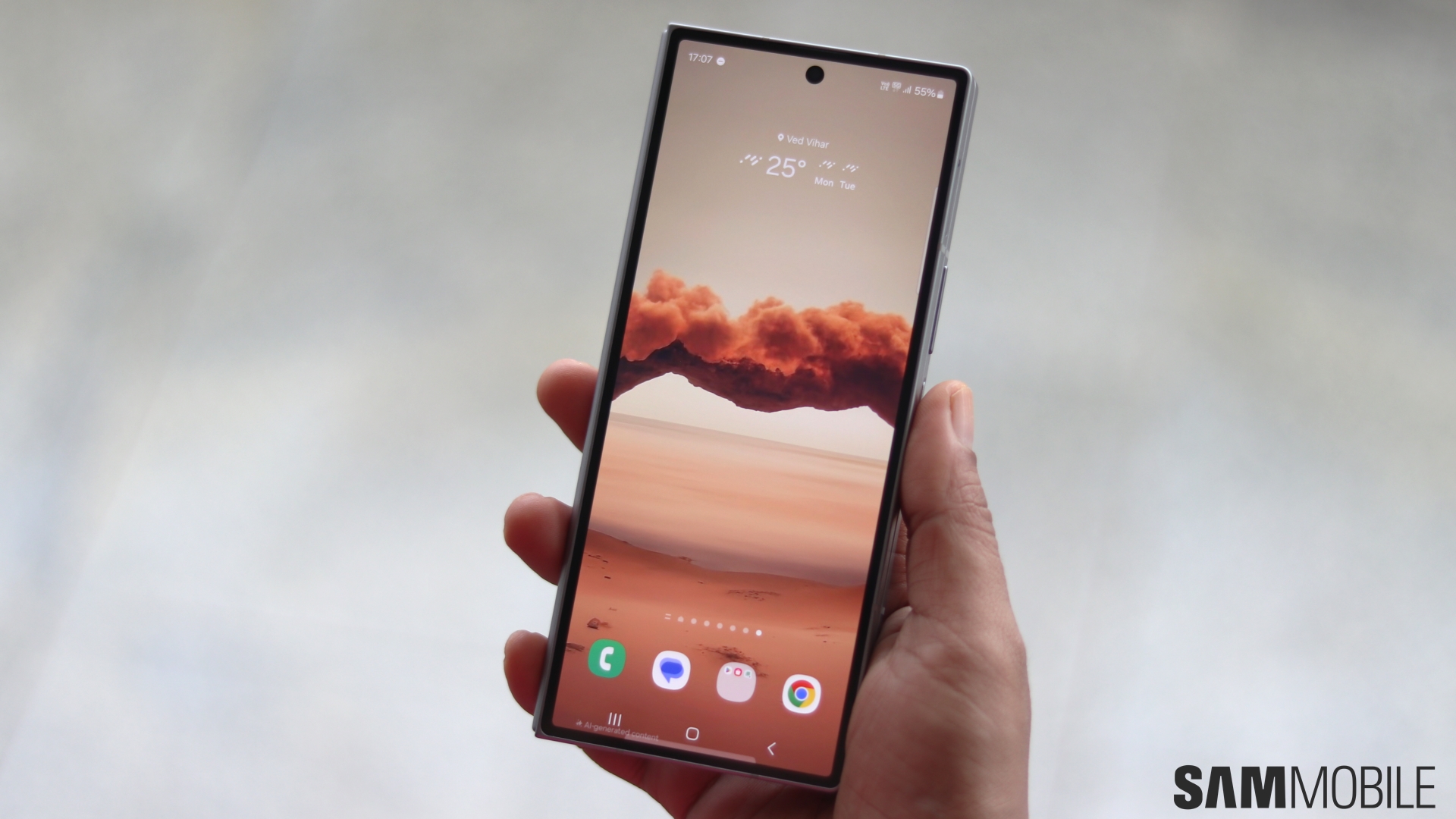
There have been some instances where that has most definitely been true. It was true when Samsung pushed ahead with larger screens on the Galaxy Note line even as the entire industry stuck with smaller devices on the assumption that people wouldn't want very large displays.
It was true when Samsung forged ahead with high-end Android tablets even as other players in the market fizzled out because they just couldn't crack the sauce, so to speak, that made people want to buy expensive tablets from Samsung but not from any other Android manufacturer.
And it was also most certainly true when Samsung started the foldable revolution back in 2019 and proved with significant upgrades almost every single year that these aren't just meant to be concept devices. These are phones that can stand the rigors of daily use.
There comes a point, though, that once these innovations have made their mark, things sort of mellow out. That happened with the Galaxy Note series where yes, the large display and the S Pen were always the standout features, but you also knew that the new models that came out every year weren't going to be radically different.
We're also seeing this on foldable phones. For instance, you'd be hard pressed to distinguish the Galaxy Z Flip 6 from last year's Galaxy Z Flip 5 at a distance. What we've witnessed in recent years, especially since Samsung's current smartphone boss TM Roh took charge, is that there's been a lot more focus on process optimization and potentially margin maximization.
At Samsung, innovation seems to have taken a backseat
The focus appears to have shifted from taking a bold approach to innovation to optimizing the business end of things, including profitability. Yes, Samsung's running a business and it needs the divisions to be profitable. But that's not to say that fans don't notice when the balance shifts a bit too much towards playing it way too safe instead of swinging for the fences once in a while.
Huawei is the perfect example of swinging for the fences. The Chinese tech giant has been on a resounding comeback trajectory after being relentlessly pursued by US sanctions. It still can't access semiconductors and other technologies from companies that deal with the US and there still is a lot of negative sentiment around it, but the company has been able to withstand all of that and make some bold bets.
It's proof that business considerations and bold bets can go hand in hand. Just last month, Huawei reported that both its revenues and profits have surged by double digits even though the strict US sanctions remain in place. Whether or not the new devices that it's been putting out appeal to you, the fighting spirit that Huawei has shown is commendable and deserves respect.
Huawei's innovative spirit in the face of numerous obstacles is commendable
As a diehard Samsung fan, it hurts to see that the company has reduced its focus on pursuing radically innovative ideas. We had hoped that foldables would be the area where Samsung will consistently pursue the shock and awe strategy. Instead, even its foldables have become predictable now.
Samsung might take confidence in the fact that its lead in the foldables market is insulated because the Chinese manufacturers are really the only ones making competing devices, and they're unable to sell their phones in markets across North America. So, unless you have Apple jumping into the fray, Samsung is unlikely to take the Chinese threat in foldables seriously.
Huawei could have felt that the writing was on the fall for its smartphone division when the sanctions hit. It could have chosen to focus on one of its many other businesses. But it's as if the sanctions lit a fire and made Huawei feel like it had had a point to prove to the world, that it could continue to innovate despite all of the setbacks. The result has been some incredible, or at least thought-provoking, devices coming out of Huawei.
The latest example is the Huawei Mate XT. It's a tri-folding smartphone, the world's first of its kind. It boasts two hinges that allow the 10.1-inch display to fold and unfold. A measure of Huawei's confidence in the device is its planned unveiling just hours after Apple unveiled new iPhones.
Huawei is positioning the Mate XT as the only rival to the new iPhones in China, which has historically been a very important market for Apple's smartphones. And the consumers have responded. Local reports suggest that Huawei has already received more than 3 million reservations for the device. Imagine if the company could sell its devices without barriers overseas!
It's time for Samsung to make some bold bets
It's not like the mobile division at Samsung lacks talent. Samsung Display, an integral part of the conglomerate, is one of the best display manufacturers out there with some very interesting concepts that it shows off from time to time.
It has a number of patents and prototypes on tri-folding, stretchable, rollable, etc displays. Samsung MX can push for increased collaboration with Samsung Display to show off the company's potential to innovate.
Even if it's devices or concepts that may not have immediate commercial potential, limited edition devices could be made and displayed at Samsung's Experience Stores as a way to invite people to learn about the potential of the Galaxy ecosystem.
What's sad, though, is that we all remember a time when Samsung was relentlessly pursuing innovation in every aspect of the business. It was trying its hardest to shake off the impression that all it could do was copy Apple and it did so spectacularly.
As Samsung fans, you could feel that the company was all about pushing the envelope on innovation. But that feeling has disappeared. Seeing Samsung's biggest Chinese rival achieve spectacular feats is something that hurts me deeply as a Samsung fan.
If you follow conversations among longtime Samsung fans on social media and online message boards, you'll find that there's a consensus regarding the decisions made since Roh took charge of the division.
Samsung's innovative spirit seems to have tapered off. Roh has done a wonderful job of improving the viability of the business. But he should be doing a lot more to protect Samsung's legacy of innovation as well. Fans don't want to see Samsung becoming another BlackBerry or Nokia. Those companies thought their dominance was untouchable, and we all know how that turned out, right?












